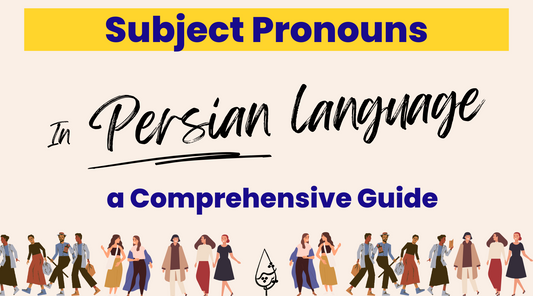The Meaning and Cultural Significance of "Jun" and "Jān" in Persian
In Persian, جون (Jun) and جان (Jān) carry a special depth of meaning and emotion. Though they translate to "soul" or "life," their usage in everyday speech reflects a profound level of affection, connection, and warmth that goes beyond these simple definitions.
Affectionate Usage:
- "جان" (Jān): This is the formal term meaning "soul" or "life." Adding Jān after someone’s name, such as "Ali Jān" or "Sara Jān," transforms it into "Dear Ali" or "Dear Sara." This term carries a touch of sweetness, used among family, friends, and loved ones to express deep respect and fondness.
- "جون" (Jun): The more casual, colloquial variation of Jān, often pronounced like the “u” in “Lucy.” This term is also highly affectionate and often used in day-to-day speech. Jun maintains the same meaning as Jān but has a slightly more playful, informal vibe.
Romantic and Playful Flattery:
Both Jān and Jun can express admiration or love in a romantic setting. Extending the pronunciation—like saying “Jooooon!”—adds extra warmth and affection. Here are a couple of playful ways Jun and Jān are used in Persian relationships:
- Expressing Admiration: When you see your partner looking especially stunning, you might say “Jooooon!” or “Bah bah!” to convey that you’re smitten.
- Responding with Love: Instead of saying “Yes,” (bale in Persian), responding with “Janam” adds an intimate tone, like saying, “Yes, my dear.”
Offering Comfort and Emotional Support:
- "جانم" (Jān-am): Meaning "my soul," Jān-am is a heartfelt way to show support. You might say, “Janam, biya baghalam” (“My soul, come to my arms”) when comforting someone you care about.
- "جونم" (Jun-am): Jun-am serves a similar purpose in more casual settings, offering warmth and assurance. This might be used between friends, family, or partners, creating a comforting and affectionate environment.
For those of you who want to dive deeper, Baraye To covers a comprehensive list of expressions to enrich your conversations with loved ones.
Click here:
Ey Jān, Ey joon
Embracing Your Accent & Persian Connection
For those on a journey to learn Persian, remember there’s no need to feel self-conscious about your accent. Many second- and third-generation Iranians or those from Persian-speaking families abroad worry that their accent doesn’t sound "authentic." But language is a bridge to connection, not perfection. Each attempt you make to use Persian shows pride and love for the culture, regardless of accent or fluency level.
❤With love and gratitude,
Shirin





